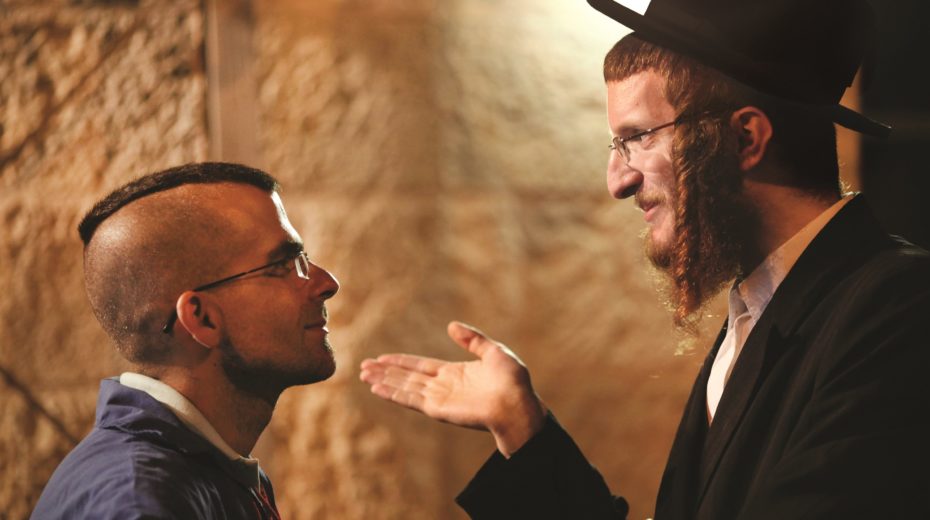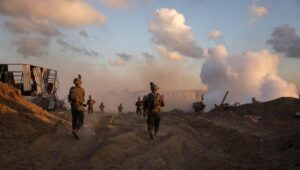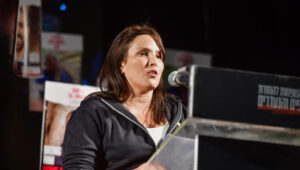Former Defense Minister Avigdor Lieberman once told the General Staff of the IDF: “When there is a conflict between the unity of the nation and unity of the Land, unity of the people is of greater importance.” Even though Lieberman is a right-wing nationalist, this is basically a left-wing view. Since human life is more important than land, Israel can consider territorial compromise.
Throughout the long history of the Jewish people, the debate has raged over the most important ideal: the people, the Land or the faith. The rabbis say this question does not make sense because there is no division or conflict between the people and Land of Israel, and the Torah. They are united, and when one element is affected the others are as well. As the Land accommodates the people, the people revived the Land.
Jewish scholars illustrate the example of a family. When its three children bicker, is one of them kicked out of the house? Of course not. Likewise, the people, the Land and the Bible are individual, yet indivisible parts of one family.
Lieberman, a secular Jew, gave his personal preference to the people. In the same speech, he also expressed support for a two-state solution.
The term pikuach nefesh (saving lives) is a key principle in Judaism. It is based on the biblical concept that the preservation of human life is paramount and overrides all other commandments. If a person’s life is in danger, almost every prohibition of the Bible must be broken, for example, the holiness of Shabbat (the Sabbath) and Yom Kippur (the Day of Atonement). But is this also true with regard to Eretz Yisrael, the Land of Israel?
The ultra-Orthodox Shas party, under the spiritual leadership of the late Rabbi Ovadia Yosef, supported the controversial Oslo Accords with the Palestinians in 1993, including its territorial compromises in Judea and Samaria (the so-called “West Bank”). Citing pikuach nefesh, Rabbi Yosef said relinquishing biblical land is permissible if it saves lives.
However, the opposite occurred: In the wake of Oslo, there was more bloodshed between Israelis and Palestinians than before. The theoretical application of pikuach nefesh was proven wrong.
In order to actually save lives, Israel would probably have to do the opposite. The national religious camp, including many settlers, believes that to accomplish Pikuach Nefesh, Israel must hold on to the Land and thus avoid more bloodshed.
The Jewish families who went from the fields of Morocco and Yemen to the Land of Israel over 300 years ago to live near the holy places in Jerusalem, Hebron and Safed, ultimately had to choose between land and faith. Many chose the Land and gave up their beliefs, being forced to convert to Islam under Ottoman Turkish rule. This is described in detail by historian Yitzhak Ben-Zvi, who served as Israel’s second president from 1952 to 1963.
In the Jewish Revolt against the Romans (132-135 AD), Zealot leader Simon bar Kokhba was willing to sacrifice the Jewish people for the sake of the Land of Israel. Despite being a charismatic and courageous commander, bar Kokhba’s fundamental decision resulted in a historic disaster. Israel was destroyed and the remnant of the Jewish people was driven into Exile.
It was and is not an easy choice. Whether Israel chooses the people or the Land, something inevitably is lost. Pikuach nefesh for the sake of the people does not guarantee an end to the bloodshed, and compromising on the Land does not ensure a peaceful resolution of the Mideast conflict.
















Of course it’s not yours to give as both land and people belong to the Lord. The exile is proof that living in the land is conditional. This is where the focus needs to be: Is Israel devoted to her Maker?
The concept of Messiah is the cornerstone of division in Judaism. Daniel 9 and Isaiah 53 make clear that Messiah is the suffering servant rejected by his brethren as Joseph was. Yet Zechariah and Isaiah also make Messiah the conquering king as David was. As we approach Passover and remember Messiah as suffering servant, we recognise Christ became the first fruits of the resurrection that led to the Spring harvest at Shavuot. Tabernacles joyously celebrates Messiah returning as conquering king, reigning over all the earth and bringing harvest to the world.
The tactical withdrawal of 1948 could have been recovered in 1967. Only US Democrats believe in a two-state solution, everyone else knows it’s a dishonest land grab that was thwarted, they need convincing.